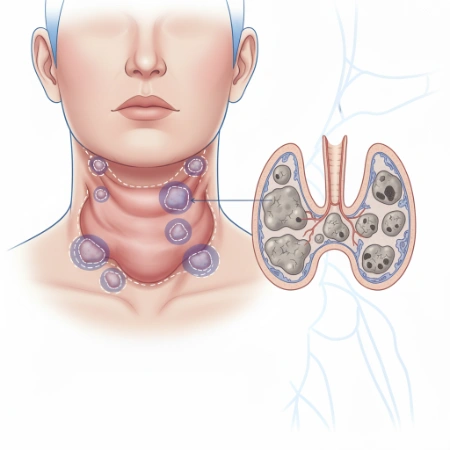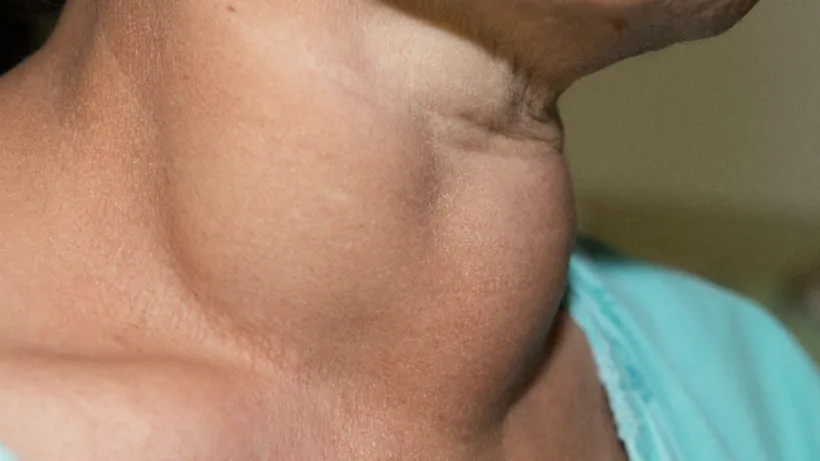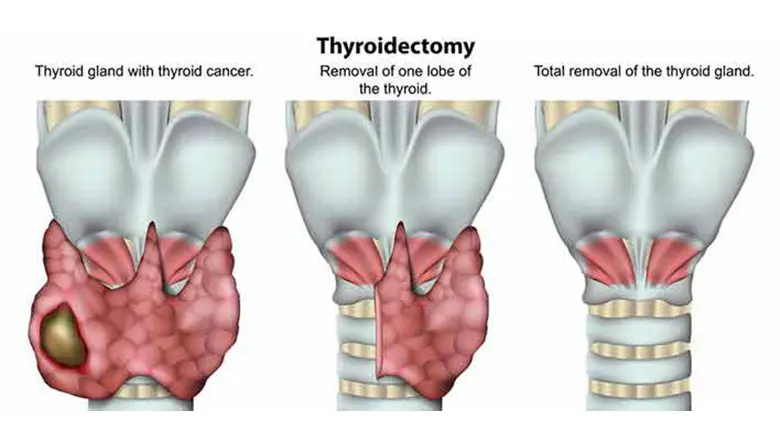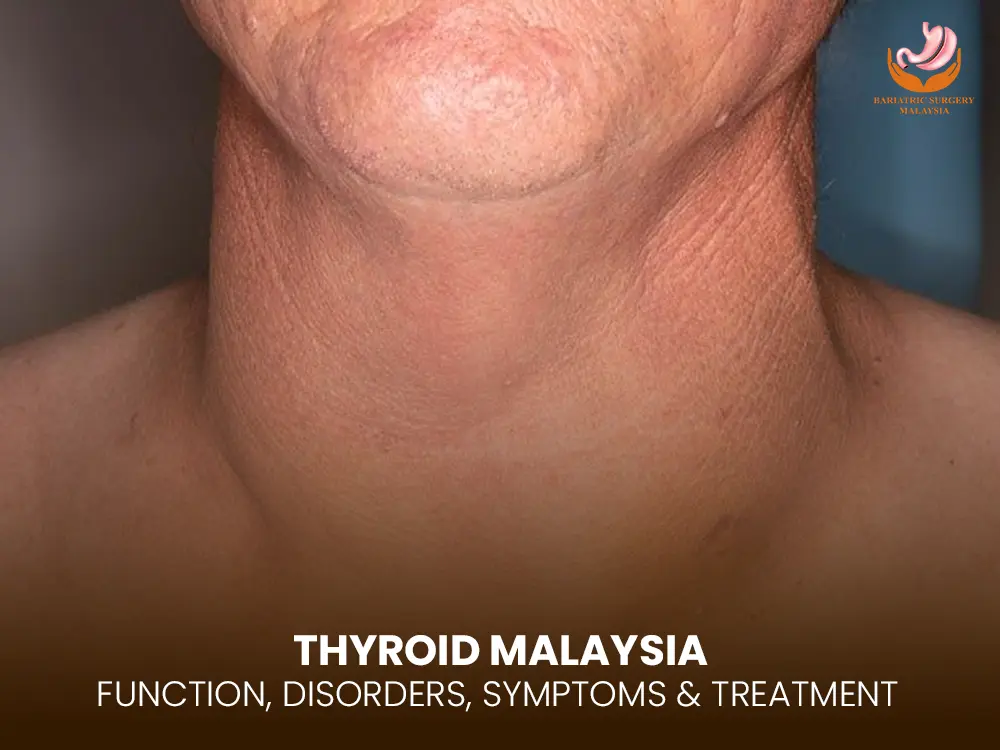In Malaysia, thyroid disorders affect an estimated 10–15% of the population, with hypothyroidism being the most common type, particularly among women aged 30 to 60. Early screening and treatment are essential as many cases remain undiagnosed until symptoms become severe.
What Is the Thyroid?

The thyroid gland is a small, butterfly-shaped gland located in the front of your neck, just below your Adam’s apple. Despite its size, the thyroid plays a major role in regulating essential body processes. It produces and releases thyroid hormones that control metabolism, body temperature, heart rate, and energy production.
A healthy thyroid ensures that your body converts food into energy efficiently and keeps your organs functioning at the right pace. However, when thyroid hormone levels are too high or too low, it leads to thyroid disorders such as hypothyroidism or hyperthyroidism.
The Role of the Endocrine System
Your endocrine system is a network of glands that produce and secrete hormones directly into the bloodstream. These hormones act as chemical messengers, controlling growth, mood, metabolism, and reproduction.
The major endocrine glands include:
Thyroid gland
Pituitary gland
Hypothalamus
Parathyroid glands
Adrenal glands
Pancreas
Ovaries / Testes
Among these, the thyroid is essential for maintaining metabolic balance throughout the body.
Functions of the Thyroid
Your thyroid produces several important hormones that influence nearly every cell and organ in your body:
Thyroxine (T4): The primary hormone made by the thyroid. It converts into T3 for metabolic activity.
Triiodothyronine (T3): The active hormone that regulates metabolism.
Reverse T3 (rT3): A form that counteracts T3.
Calcitonin: Regulates calcium levels in the blood.
To create these hormones, the thyroid needs iodine, which is obtained from food such as iodized salt, fish, dairy, and seaweed. An iodine imbalance can disrupt thyroid function.
Thyroid hormones regulate:
Metabolism and energy levels
Heart rate and breathing
Digestion
Brain development
Body temperature
Skin, hair, and bone health
Reproductive function
Anatomy of the Thyroid Gland
The thyroid is located at the front of the neck, wrapped around the trachea (windpipe). It has two lobes connected by a thin tissue called the isthmus. The gland contains follicular cells that produce hormones (T3 and T4) and C-cells that secrete calcitonin.
A normal thyroid is not visible or palpable. When enlarged, it forms a goiter, which may cause neck swelling or tightness.
Common Thyroid Disorders
Thyroid disorders are widespread and affect millions globally. They can cause either overproduction or underproduction of thyroid hormones.
The main thyroid conditions include:
1. Hypothyroidism (Underactive Thyroid)
Occurs when the thyroid doesn’t produce enough hormones, slowing down metabolism.
Causes:
Hashimoto’s disease (autoimmune)
Iodine deficiency
Thyroid surgery
Over-treatment for hyperthyroidism
Congenital thyroid disorder
Symptoms: Fatigue, weight gain, dry skin, hair loss, constipation, and sensitivity to cold.
2. Hyperthyroidism (Overactive Thyroid)
Happens when the thyroid produces excessive hormones, increasing metabolism.
Causes:
Graves’ disease
Thyroid nodules
Excessive iodine intake
Thyroiditis (inflammation)
Symptoms: Weight loss, anxiety, sweating, rapid heartbeat, and heat intolerance.
3. Goiter (Enlarged Thyroid)
A goiter develops when the thyroid grows abnormally large. It may result from iodine deficiency, inflammation, or hormonal imbalance.
Symptoms: Visible neck swelling, tightness, or difficulty swallowing.
4. Thyroid Cancer

A rare but treatable condition where abnormal cells grow in thyroid tissue.
Types: Papillary, Follicular, Medullary, and Anaplastic thyroid cancer.
Treatment: Thyroidectomy (surgery), radioactive iodine, or hormone therapy.
Symptoms of Thyroid Problems
Signs of thyroid dysfunction vary based on whether hormone levels are high or low, but common symptoms include:
Unexplained weight gain or loss
Fatigue or restlessness
Irregular heart rate
Feeling too hot or cold
Hair thinning
Mood changes (depression or anxiety)
Irregular menstrual cycles
If you experience these symptoms, a thyroid function test can determine if your thyroid is underactive or overactive.
Thyroid Diagnosis and Tests
The most common test for thyroid health is a TSH (Thyroid-Stimulating Hormone) blood test. It measures how well your thyroid responds to pituitary signals.
Other diagnostic tools include:
T3 and T4 hormone tests
Thyroid ultrasound
Thyroid scan (radioactive imaging)
Fine-needle aspiration biopsy (for nodules)
Thyroid Treatment Options
Treatment depends on the type and severity of thyroid disorder:
1. Medication
Thyroid hormone replacement (Levothyroxine): For hypothyroidism.
Antithyroid drugs (Methimazole, PTU): For hyperthyroidism.
Beta-blockers: To manage symptoms like rapid heartbeat.
Radioactive iodine therapy: To reduce thyroid hormone production.
2. Surgery
Thyroidectomy (partial or total removal of the gland) is performed for thyroid cancer, large goiters, or uncontrolled hyperthyroidism.
3. Radiation & Chemotherapy
Used in certain thyroid cancer cases to destroy cancer cells and prevent recurrence.
Risk Factors for Thyroid Disease
You’re more likely to develop thyroid conditions if you:
Have a family history of thyroid disorders
Are female and over 60
Have autoimmune diseases (like diabetes or lupus)
Consume excessive or insufficient iodine
Take iodine-rich medications or supplements
How to Keep Your Thyroid Healthy
Eat iodine-rich foods (iodized salt, seaweed, fish, dairy).
Avoid overconsumption of iodine supplements.
Manage stress and maintain a balanced diet.
Get regular thyroid function tests if you have risk factors.
Seek medical advice early for any symptoms of thyroid imbalance.
Frequently Asked Questions (FAQs)
1. What are normal thyroid hormone levels?
Normal TSH levels range from 0.5 to 5.0 mIU/L, though the range may vary by age and lab standards.
2. Can thyroid problems be cured?
Many thyroid conditions are treatable. Hypothyroidism often requires lifelong hormone replacement, while hyperthyroidism may be managed through medication or radioiodine therapy.
3. Can I live without a thyroid?
Yes. People who undergo thyroidectomy can live normally by taking thyroid hormone replacement for life.
4. How does diet affect thyroid health?
Iodine, selenium, and zinc support thyroid function. Both deficiency and excess iodine can cause problems, so balance is essential.
5. When should I see a doctor for thyroid problems?
Consult your healthcare provider if you experience symptoms such as fatigue, neck swelling, weight changes, or heart rate irregularities. Early diagnosis ensures effective treatment.
Thyroid Surgery In Malaysia With Dr. Navin Mann

Thyroid surgery in Malaysia is a safe and effective treatment for thyroid disorders such as goiter, nodules, or cancer. Performed by Dr. Navin Mann, a certified endocrine and bariatric surgeon, the procedure removes part or all of the thyroid gland to restore hormonal balance and improve long-term health outcomes.


